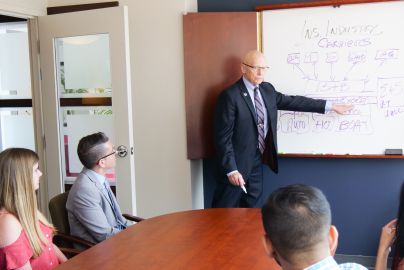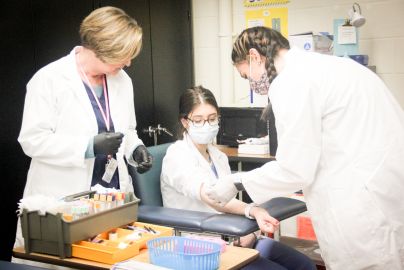Academics
At CT State our academic programs are broken down into six schools, each of which contains a number of degrees and certificates to choose from.

School of Arts and Humanities
Curiosity, expression, and passion combine in our arts and humanities programs ranging from fine and digital arts, to communications, dance, languages, design, new media, theater and more!

School of Business and Hospitality
Meet the growing need for trained employees in accounting, bookkeeping, business office technology, culinary arts, hospitality, government, international business, nonprofit organizations, paralegal and more!

School of Engineering and Technology
Learn how to interact with technology, the complexity of an information-rich society, and the impact of information in our lives with programs in architecture, automotive technology, computer sciences, cybersecurity, engineering, firefighting, technology and more!

School of Nursing and Health Careers
Train for a career in healthcare with programs such as dental assisting, exercise science, medical assisting, nursing, nuclear medicine, paramedics, physical therapy, radiography, surgical technology, and more!

School of Science and Mathematics
Take part in engaging learning opportunities in science and mathematics including programs in biochemistry, biology, biotechnology, chemistry, environmental, natural, and physical sciences, mathematics, physics, and more!

School of Social and Behavioral Science
Understand more deeply the cultural, historical, social, political, and psychological forces that shape our lives with programs in anthropology, criminal justice, drug and alcohol recovery counseling, education, geography, history, human services, political science, psychology, sociology, and more!